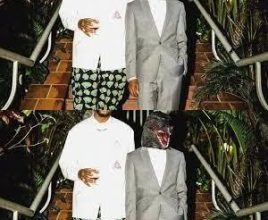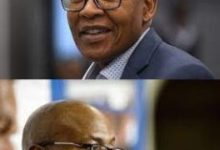
Jacquemain Shabani Biography
Jacquemain Shabani, born August 5, 1937, in Kayanza, in the province of Tanganyika, is a political figure in the Democratic Republic of Congo.

Family, youth, and training
Jacquemain Shabani, the firstborn of Katshelewa Mugogwa and Feza Kalunga, was born on August 5, 1937, in Kayanza, in Kongolo territory, in Katanga, today Tanganyika province1.
In 1946, his father, Katshelewa Mugogwa, anxious to ensure a good education and training for the eldest of his children, took him to Elisabethville, present-day Lubumbashi, temporarily leaving his family in Kayanza.
In Elisabethville, he enrolled at the Saint Boniface Institute, today Kitumaini College.
He then enrolled at Lovanium University, today the University of Kinshasa, for propaedeutics studies and candidacy in economic sciences (1959-1962), before continuing his academic studies at the Catholic University of Louvain, in Belgium, where he obtained his degree in economics in 1964.

Professional career
After his brilliant studies at the University of Louvain, Jacquemain Shabani was called to the country, to Léopoldville to exercise the functions of Director of the Economic Coordination Office under the aegis of the International Monetary Fund, IMF, at the same time as he exercises the function of Economic Advisor to Prime Minister Moïse Tshombe.

Political career
With the coup d’état of the military high command led by Colonel Joseph-Désiré Mobutu in 1965, Jacquemain Shabani went into exile in Belgium.
Taking advantage of his political exile, he resumed his studies to obtain a doctoral degree. These studies were crowned by a doctoral thesis in economic sciences in 1975 entitled “The copper industry in the World and the economic progress of the African Copperbelt”.
He was also appointed Professor at the Faculty of Economic Sciences in 1976 at the University of Louvain.
His brilliant thesis then attracted the attention of the United Nations, which offered him a position within the United Nations Industrial Development Organization (UNIDO) in Vienna, Austria.
President Mobutu, having learned of the existence of the thesis of one of his Zairian compatriots, suggested that its author return to the country.
Jacquemain Shabani accepted his position with conditions, which the President agreed to fulfill.
Thus, while being in Europe at the headquarters of UNIDO, he was appointed State Commissioner for National Economy and Industry on February 23, 1977.
When he took the reins of his ministerial portfolio, the economy of Zaire was in complete disarray with its manufacturing infrastructure in agony.
To accelerate the recovery of this economy, State Commissioner Jacquemain Shabani then created the Development Convention Fund, which would later become the Industry Promotion Fund.
This Fund is, to date, the only national public structure that helps finance investment in industry and agriculture.
Subsequently, he held the functions of State Commissioner for the Portfolio (August 19, 1977), the Economy (December 13, 1977), the Portfolio (January 5, 1979), and Agriculture and Rural Development (January 18, 1980).
After a brief stint in the Political Bureau of the Popular Movement for the Revolution (MPR) in 1981, he was recalled to the Government in the following Departments: economy, industry and foreign trade (November 5, 1982), agriculture and rural development (November 1, 1983), Foreign Trade (February 1985).
In April 1985, he was called to the role of Deputy General Chairman of GECAMINES HOLDING2.
From 1987, he resumed ministerial functions, occupying successive positions as Minister of Finance and Budget, Minister of Economy and Industry, Deputy Prime Minister in charge of the economic and financial sectors, and finally Minister of Agriculture3.
In 1991, Jacquemain Shabani exercised what will be his last public office, that of Governor of the Central Bank of Zaire4, a position he will leave on April 2, 1993.
Governor Jacquemain Shabani introduced new organic structures in the bank in April 1992.
He revitalized the Governor’s Audit.
In addition to its initial vocation, the Audit was to carry out reflections and make proposals regarding the economic, financial, and monetary problems of the country.

Post-political life
Since leaving official functions, Jacquemain Shabani has been responsible for training the country’s executives.
In addition to his professorial role, Jacquemain Shabani also revealed himself to be a true captain of industry.
Boss of two companies ransacked, pillaged, and ruined at the advent of the Alliance of Democratic Forces for the Liberation of Congo, namely the Zairian Livestock Society, SOZEL, and the Zairian Fishing Society, SOZAP.
In 2008, Jacquemain Shabani created a natural mineral water production company, Sobemil, the only one in the sector owned by a Congolese entrepreneur and a large, fully automated soft drinks factory in Kinshasa, with an installed capacity of 10,000 bottles per hour

Social achievements
In 2019, Jacquemain Shabani built a modern hospital equipped with 320 beds in the village of Mombwe, in cooperation with his nephew André Lumbu.
This hospital center is served with drinking water by a water borehole and supplied with electricity by solar panels. The hospital very quickly became a center of influence and development in the region.
Thanks to the foundation they created, Fondation Feza et Fatuma ya Kahinga, Jacquemain Shabani and his nephew carry out projects that directly impact the lives of the rural population of the region.
To give many young people a horizon, the Foundation built a trade school in Kayanza where children learn carpentry, plumbing, and masonry.
It is also continuing a project to modernize rural housing by encouraging villagers to build with baked bricks, the frame, and sheet metal being offered by the Feza Foundation and Fatuma ya Kahinga.
Following months of delay, the Democratic Republic of the Congo introduces a new administration
The new cabinet consists of 54 ministers, as opposed to the previous government’s 57.
On Wednesday, the Democratic Republic of the Congo announced the formation of a new cabinet, bringing an end to more than five months of political uncertainty following President Felix Tshisekedi’s reelection.
The new Cabinet consists of 54 ministers, compared to 57 in the previous government, including Prime Minister Judith Sumonwa Tuluka, Congo’s first female prime minister, who was appointed in early April.
The president selected Jacquemain Shabani, his powerful former electoral campaign director and primary political and electoral counsel, to the Interior Ministry.
Constant Mutamba, the leader of the Congo Dynamic Progressive Revolutionary Opposition platform, was appointed justice minister, and Guy Kabombo replaced Jean-Piere Bemba in the Defense Ministry.
Tshisekedi replaced Christophe Lutundula in the Foreign Ministry with a woman, Therese Kayiwamba.
Kizito Kapinga was assigned to the Mines Ministry, where he will oversee Central Africa’s globally significant reserves of coltan, copper, and other minerals.
The new cabinet, which includes 16 female ministers, was formed after more than five months of negotiations between the president’s new allies, who have controlled parliament with 95% of National Assembly seats since the previous election in December 2023.
The army claimed last week that it stopped a coup attempt in the capital Kinshasa, detaining many people involved in the operation.
The government’s immediate priorities include quelling the M23 rebellion in the volatile east and improving the living standards of regular inhabitants who earn less than $2 per day.

Jacquemain Shabani Instagram
Jacquemain Shabani TikTok
@sha.lukoo
Discover more from Labaran Yau
Subscribe to get the latest posts sent to your email.



















